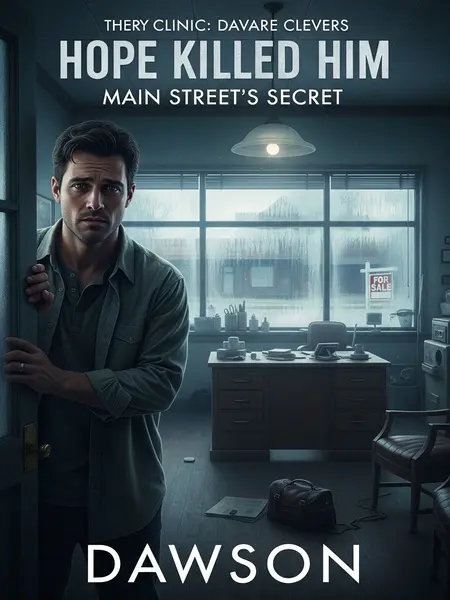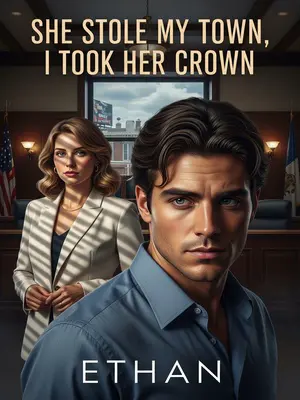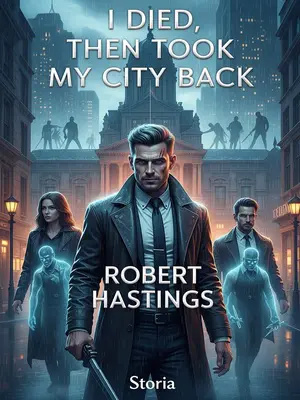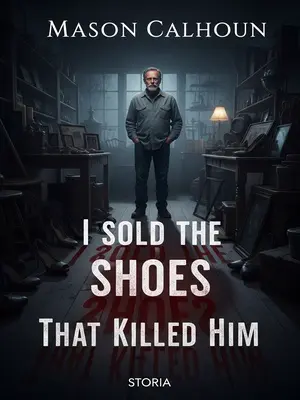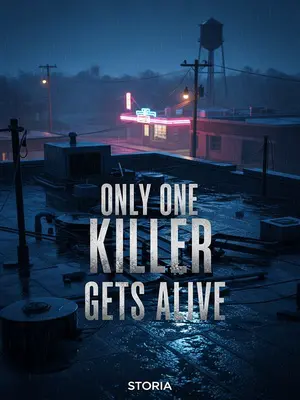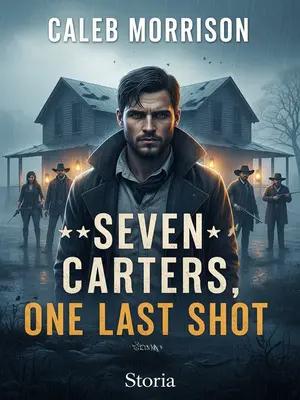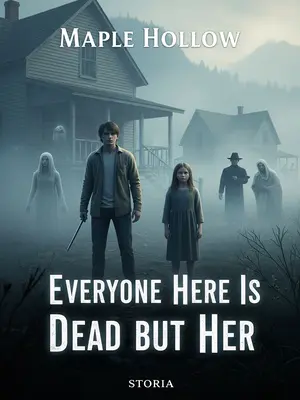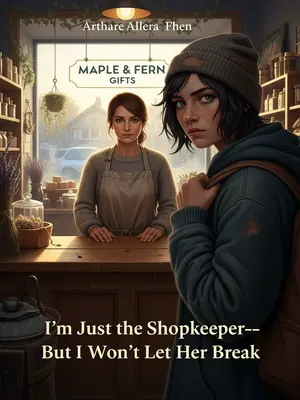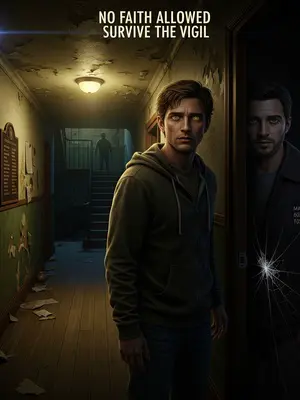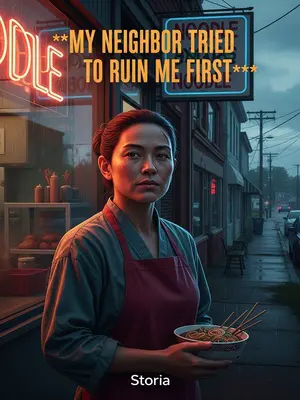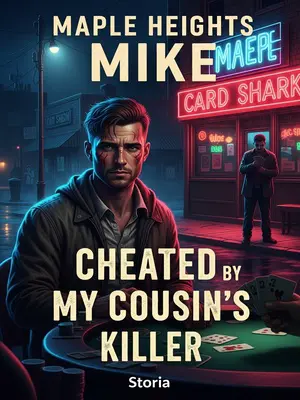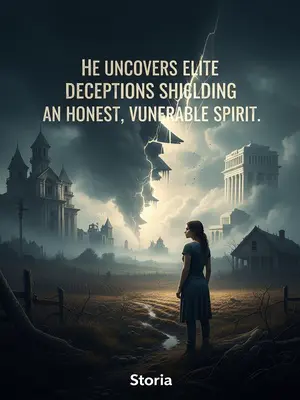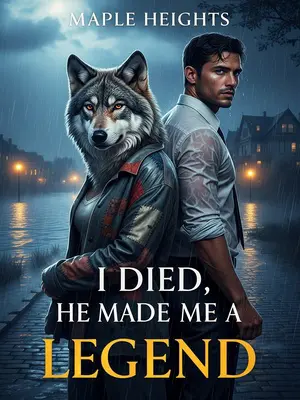Chapter 3: Kindness and Consequence
But in the end, Luke didn’t make it. That day, I picked up medicine from Dr. Grant and left it in the garbage truck’s toolbox. Besides cleaning the clinic, my main job was street sweeping.
The city job kept food on the table, but it was hard work. I’d stash Luke’s medicine in the truck so I wouldn’t forget. That day, the sun was high, and I remember thinking it was too hot for October. I never thought it’d be the last time.
At noon, I went home and brewed the medicine for Luke. After he drank it, his whole body started convulsing. Before the ambulance arrived, he died at home.
I can still hear the sound of the glass clattering on the table, the way Luke’s eyes rolled back, the panic in my own voice as I called 911. The minutes stretched on forever, the sirens too slow, the world too quiet after.
At that moment, it felt like the sky had fallen. My world ended.
I sat on the kitchen floor, clutching his hand, begging him to stay. I replayed every moment, every decision, wondering if I’d missed something. But sometimes, there just aren’t any answers.
The memorial was set up quickly. Neighbors came to pay their respects. They gathered in the backyard, talking in small groups, voices low.
The backyard filled with the scent of cut grass and the sound of whispered condolences. Someone brought a casserole, another left flowers on the porch. People talked in hushed tones, glancing my way when they thought I wasn’t looking. It was the kind of gathering Main Street did best—quiet, respectful, and laced with sorrow.
"How’s old Dawson supposed to go on now? That father and son had such hard lives."
Their words drifted over the fence, soft and sad. The kind of sympathy that comes from folks who’ve seen their own share of loss.
"Ain’t that the truth? Dawson was quite the looker back in the day—who’d have thought his son would tie him down, and now the boy’s gone too."
I heard the regret in their voices, the way people talk about dreams that never quite came true. I tried not to let it sting.
"Do you think it really was Dr. Grant’s fault? He’s been spotless all these years. Back then, Dawson’s boy was as good as dead, but Dr. Grant took the risk, never charged a cent, and kept the kid alive. With late-stage kidney failure, maybe it was just fate."
The conversation grew tense, the kind of tension that comes when blame is looking for a home. I felt the weight of every word, every sideways glance.
"Don’t talk like that."
A sharp hush, a reminder that some things are better left unsaid. Even in grief, Main Street had its boundaries.
I heard it all. My grief mixed with a tangle of other emotions. The day blurred past.
I moved through the motions—shaking hands, accepting hugs, thanking people for their kindness. But inside, I was hollowed out, my heart a tangled mess of loss and guilt.
At the memorial, a young woman caught my eye. I’d never seen her before. She was beautiful and stood off in a corner, out of place among the others. Maybe she was a friend Luke made in private.
She wore a simple dress, her hair pulled back, eyes red-rimmed but steady. Something about her posture—shoulders squared, chin up—set her apart. She looked like someone who’d carried her own share of burdens.
We spoke briefly. She called herself Laurel—a name she’d picked herself. She’d been brought here as a child, taken in by kind people. She couldn’t remember where her home was, only that there was a big oak tree in front of it. Before she left, she gave me an envelope thick with cash.
She pressed the envelope into my hand, her fingers lingering just a moment too long. "For Luke," she said, her voice barely above a whisper. I tried to refuse, but she shook her head, eyes flashing. "Please. Let it help."
For some reason, I saw anger in her sadness. It was a fire I couldn’t quite place.
The next morning, I lit a candle for Luke, held his black-and-white photo, and gently wiped it clean.
The flame flickered in the early light, casting shadows across the kitchen table. I traced Luke’s smile with my thumb, whispering a promise to remember him always. The house felt emptier than ever, the silence pressing in from every corner.
Just before noon, the door opened. I heard light footsteps.
I wiped my eyes, set the photo back on the shelf, and tried to steady myself. The sound of footsteps was a comfort—proof that life, somehow, still went on.
"Mr. Dawson, you haven’t eaten yet, have you? My family just made some chicken and dumplings—I brought you some so you don’t have to cook for lunch."
Mrs. Carter’s voice was warm, familiar. She bustled in, lunchbox in hand, Mrs. Franklin right behind her. They smiled at me, the kind of smile that says, "We’re here for you, whether you like it or not."
I turned to see Mrs. Carter from next door, carrying a lunchbox, walking side by side with Mrs. Franklin. They were headed straight for me.
They set the lunchbox on the counter, fussing over me like mother hens. I tried to protest, but they waved me off, insisting I sit down.
"It’s not a special occasion—why bring all this?"
Mrs. Franklin chuckled, smoothing her apron. "You think we need a holiday to look after our own?"
As we talked, I led them into the kitchen and invited them to sit, then reached for some plates.
The kitchen filled with the clatter of dishes and the low hum of conversation. I reached for the cupboards, but Mrs. Carter shooed me away.
"Don’t bother, just eat first—otherwise they’ll get cold."
She set the dumplings out, steam rising in the sunlight. I hesitated, but the smell was too good to resist.
"Then I won’t say no."
I hadn’t eaten since yesterday—I was starving. I dug in, spoonful after spoonful.
The taste was sharp and comforting, the kind of food that fills more than just your stomach. I ate in silence, the women watching over me like guardian angels.
While I ate, the two ladies spoke up.
Mrs. Franklin cleared her throat, glancing at Mrs. Carter. I could tell they’d rehearsed this, the way people do when the words matter.
"Mr. Dawson, don’t be too sad about Luke. The boy suffered enough."
My fork paused over a dumpling. My throat tightened as I forced down what was in my mouth.
The words caught me off guard, but I nodded, swallowing hard. Grief has a way of stealing your appetite, but their kindness made it a little easier.
"If you have something to say, just say it—we’re all neighbors."
I set my fork down, bracing myself. In a small town, folks don’t dance around the truth for long.
"You’re a sensible man, so we won’t beat around the bush. Luke’s death happened because Dr. Grant used the wrong medicine. Mr. Dawson, are you going to hold him responsible?"
Their voices were gentle, but there was steel underneath. I could see the worry in their eyes—not just for me, but for the whole neighborhood.
"What difference would it make if I did? Or if I didn’t?"
I leaned back, looking from one to the other. The question was honest—what good would blame do now?
After I said that, I put down my fork and wiped my mouth with my hand.
The kitchen felt heavy. The silence stretched. I waited.
"To be honest, Dr. Grant’s always been good to the neighbors. He makes care easy and affordable. If Dr. Grant goes to jail or can’t practice anymore, what will we do? Who can afford the hospital? We’re here today on behalf of everyone, just to ask—what are you planning to do?"
Mrs. Carter’s voice trembled just a bit. I could see the fear in her eyes—the fear of losing more than just a neighbor.
"Since you put it that way, I’m not an ungrateful person. Luke only lived this long thanks to Dr. Grant. He barely charged us for medicine all these years—if not, our family would’ve fallen apart long ago. Luke’s gone now, but at least his suffering’s over. I won’t let anyone else suffer because of this. I’ll go to the police and speak up for Dr. Grant."
I meant every word. I wouldn’t let my pain take away the hope Dr. Grant gave this town.
They broke into smiles. I felt lighter, just for a moment.
Mrs. Franklin reached over and squeezed my hand. "You’re a good man, Mr. Dawson. If you ever need anything, the neighbors won’t just stand by."
"Are there more dumplings?"
I tried to lighten the mood, forcing a smile. Sometimes, a little humor is all you have left.
"Yes, yes, I’ll go get them right away."
Mrs. Carter jumped up, bustling back to her house for another batch. The kitchen filled with laughter, the kind that chases away the dark for just a moment.
After they left, I looked up at the sky and sighed. What right did I have to hate Dr. Grant? This was just how it was gonna be for my son and me.
I stood on the porch, watching the clouds drift by. Sometimes, all you can do is accept what the world gives you, no matter how unfair it feels.
